
Harbutowice
Elaboration author
Artur Karpacz
Monuments
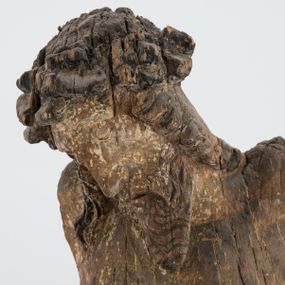
Crucifix
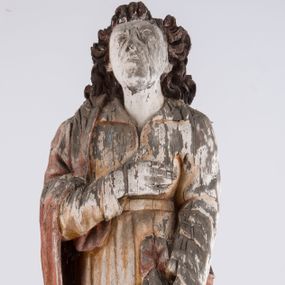
St. John the Evangelist
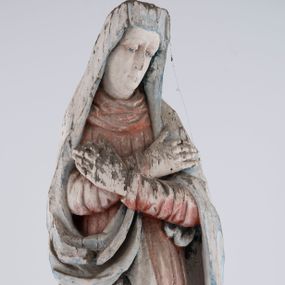
Our Lady of Sorrows
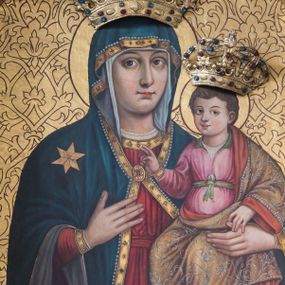
Our Lady of the Snows, Madonna of Harbutowice
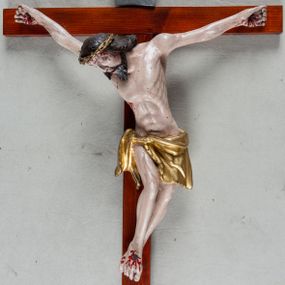
Crucifix

St. Anne
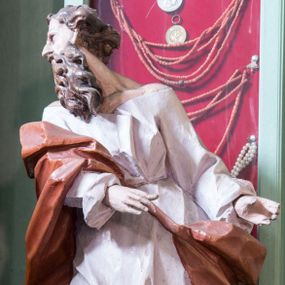
St. Joachim
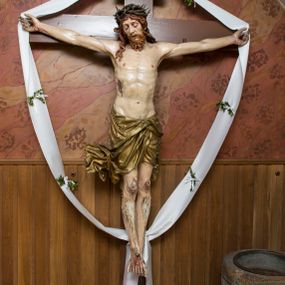
Crucifix
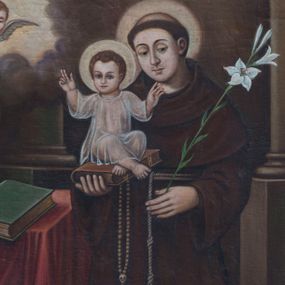
St. Anthony of Padua
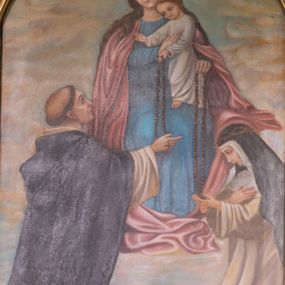
Our Lady of the Rosary
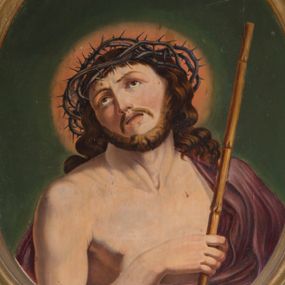
Ecce Homo
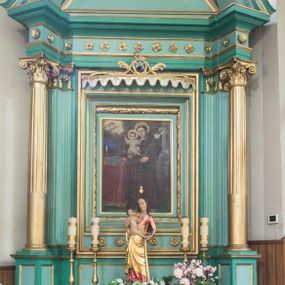
Side altar of St. Anthony of Padua
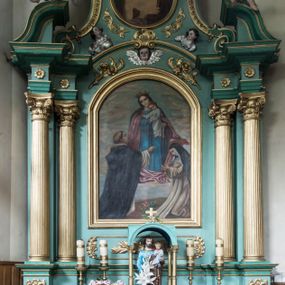
Side altar of Our Lady of the Rosary
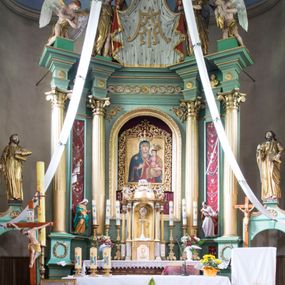
High altar of Our Lady of the Snows
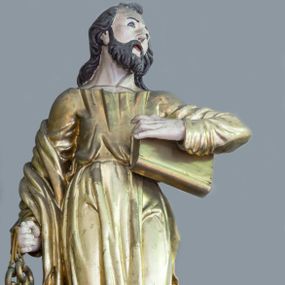
St. Peter
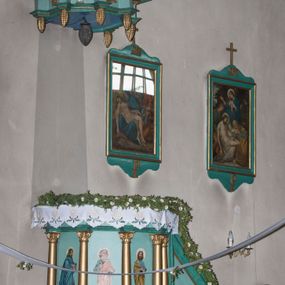
Pulpit
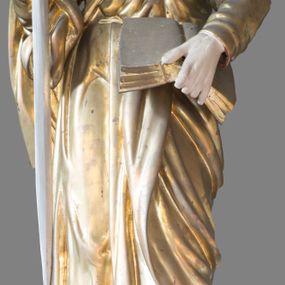
St. Paul

Angel

Organ front
History abstract
Harbutowice was most probably founded at the turn of the 13th and 14th centuries during an intensified colonisation in the Beskid Makowski Mountains. The village was founded under German law, and the first village leader was Herbert, from whom the settlement took its name. In the second half of the following century Harbutowice became a part of the endowment of the non-city starosty with its seat in Lanckorona, managed until the end of the Old Polish period by the Lanckoronski, Wolski, Zebrzydowski, Czartoryski and Wielopolski families. The settlement was one of the largest in the region, and the size of its arable land from the initial 10 lans (over 200 ha) was limited to less than 5 in the 17th century. Due to its location in the river valley, the village had an agricultural character with a nearby manor, mill and inn. After the battles of the Bar Confederates and the Partitions of Poland, the lands of the former starosty were taken over by the ducal family de Montleart. The first half of the 19th century was a period of natural disasters, crop failures and epidemics, which ended with a Galician Slaughter of 1846. The lack of a clear improvement in the financial situation of peasants after the abolition of serfdom and a permanent food scarcity with a rapidly growing population caused emigration in search for income. People sought seasonal work (the so-called saksy) in Germany, Denmark, France and Hungary. Due to its location far away from the military front, the time of World War I was relatively peaceful in the area. In the interwar period, the village was still included in the administrative limits of the Wadowice poviat. Education was organised in a primary school, a voluntary fire brigade and "Riflemen's Associations" were established. Unfortunately, the Nazi occupation was the most tragic period in the region's history. The border between the Third Reich and the General Government was drawn on the Skawa river. The peasants were forced to give away obligatory food quotas, which, with the growing level of frustration, led to the formation of underground units of the Home Army and Polish Peasants' Battalions. After the end of the war, the communist authorities first began to create a new administration in the region to carry out the agricultural reform. Then the electrification of the village and covering the old, damaged roads with asphalt began
How to cite?
Artur Karpacz, "Harbutowice", [in:] "The Sacred Lesser Poland Heritage", 2026, source: https://sdm.upjp2.edu.pl/en/places/harbutowice